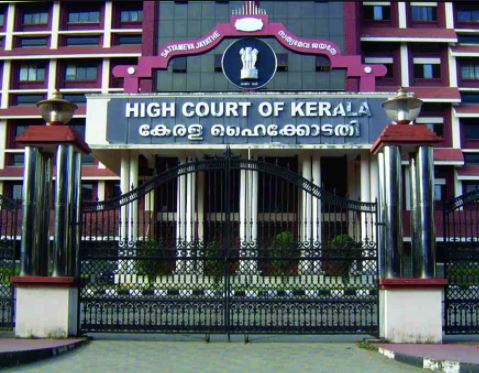The Kerala High Court, while expressing concern over the increasing number of defections from political parties despite the existence of anti-defection laws, has said that it was the need of the hour to enact an anti-defection law imposing financial penalties on defectors.
The single-judge Bench of Justice Bechu Kurian Thomas observed that unless a monetary pinch was felt by the defector, the evil acts that were sought to be remedied by anti-defection laws would continue.
Noting that the matter fell into legislative domain, the single-judge Bench said it ‘fervently hoped’ that the legislature would bestow its consideration earnestly on the same.
Calling it a bane to democracy, Justice Thomas said the conduct of political defection betrayed not only the party under which the candidate contested the elections, but also the will of the people electing the candidate.
He said wriggling out the evil of anti-defection law on technicalities, despite changing sides after the election, eroded the efficiency of the law enacted.
As per the single-judge Bench, it was important to deal sternly with ingenious methods adopted by the defectors to overcome the rigour of anti-defection law, which would otherwise, destroy the purpose of the statute itself.
The High Court noted that while on one hand, the defecting politician did not face any other significant repercussions on disqualification, on the other, the exchequer was burdened with financing a bye-election.
The High Court made these observations while considering two petitions challenging an order of the Kerala State Election Commission that refused to disqualify Mathew Joseph, a member of the Thodupuzha Municipal Council, who was elected to the Council in 2020.
As per the case, political party Kerala Congress (M) or KCM had split into two factions – KCM led by Jose K Mani and the KCM PJ Joseph Group (KCMPJJ), led by PJ Joseph.
While the KCM was given the symbol ‘two leaves’ after an order of the Election Commission of India and the High Court, the KCMPJJ was given the symbol ‘chenda’ (drum).
KCM was part of the Left Democratic Front, while KCMPJJ was part of the United Democratic Front coalition.
The petitioners submitted that while Joseph contested and won the election as a member of KPMJJ, but after getting elected, he voluntarily gave up his membership with KCMPJJ and joined the KCM. The petitioners demanded his disqualification under Section 3A of the Kerala Local Authorities (Prohibition of Defection) Act, 1999.
The counsel representing Joseph argued that KCMPJJ was not a registered political party as defined by the Representation of Peoples Act. Rather, it was, at the most, a splinter group. He said the provisions of defection applied only when a person gave up membership in a registered political party.
Noting that the definition of a ‘political party’ under the Act was not inflexible and with the purpose of the anti-defection law in mind, the Bench ruled that KPMPJJ ought to be treated as a political party for the purpose of the elections held to the Kerala local body in 2020.
The High Court noted that after considering the facts of the case and the deposition of Joseph himself, he was liable to be disqualified on the ground of defection.
Setting aside the order of the Kerala State Election Commission, the Bench disqualified Mathew Joseph from being a member of the Thodupuzha Municipal Council.
Advocates Manoj P Kunjachan and KC Vincent appeared for the petitioner, while Joseph was represented by Advocate P Deepak.
Standing Counsel Deepu Lal Mohan appeared for the State Election Commission.
(Case title: Deepak K vs Kerala State Election Commission & Ors)


